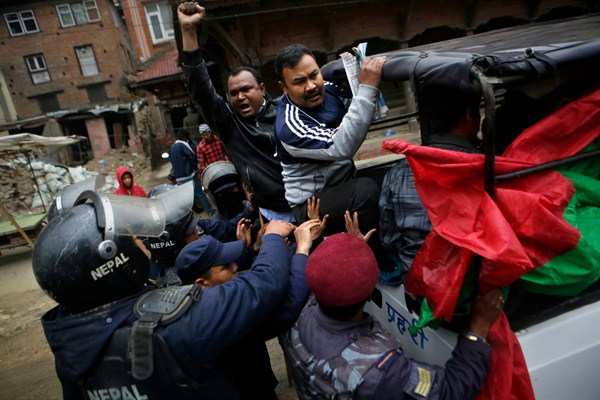KATHMANDU, Nepal — Nepalis are heading to the polls on May 14 to elect local government officials for the first time in two decades and inaugurate voting under the new constitution that passed in September 2015. But just six weeks before the voting begins, politicians are scrambling to strike a deal with the Madhesis, an ethnic group from Nepal’s southern plains that has pushed back against provisions in the new constitution.
Madhesi political parties are pushing for a constitutional amendment to give them greater representation in government and redraw provincial boundaries in order to create two federal provinces that stretch across the entirety of the country’s southern region, known as the Terai. Last month, Madhesi parties withdrew their support from Nepal’s coalition government and are now threatening to disrupt elections in the Terai, which contains nearly half the country’s population.
The elections are a key juncture for Nepal’s democracy, marking a return to democratic norms after 20 years of instability, with a civil war and ensuing transition period that each lasted a decade. Successful local elections would pave the way for provincial and federal elections slated for the fall. According to the constitution, all three elections must be conducted by Jan. 21, 2018.

